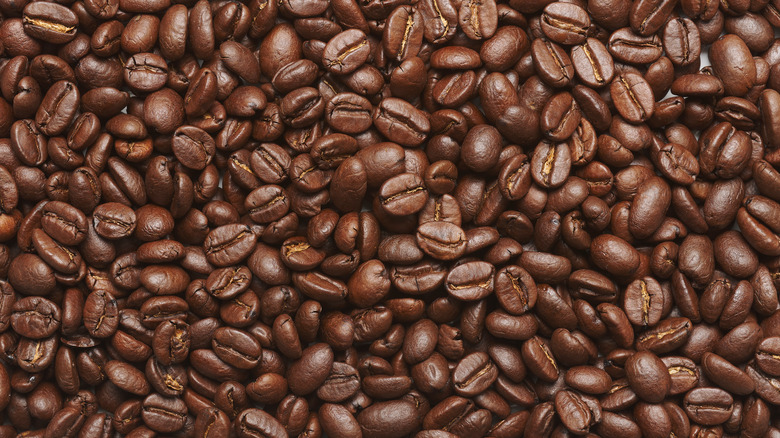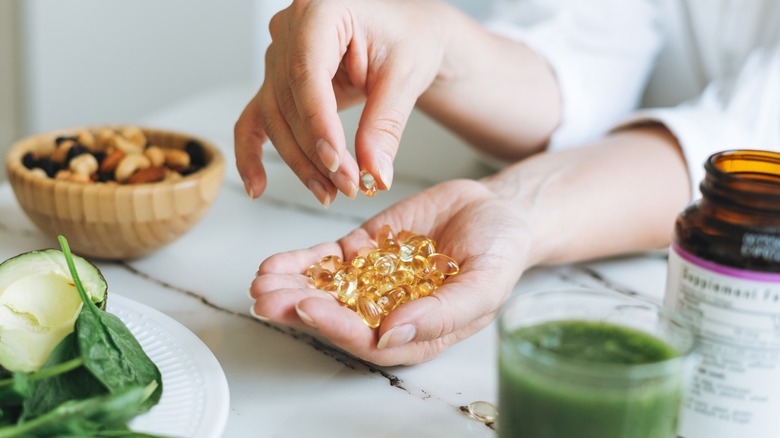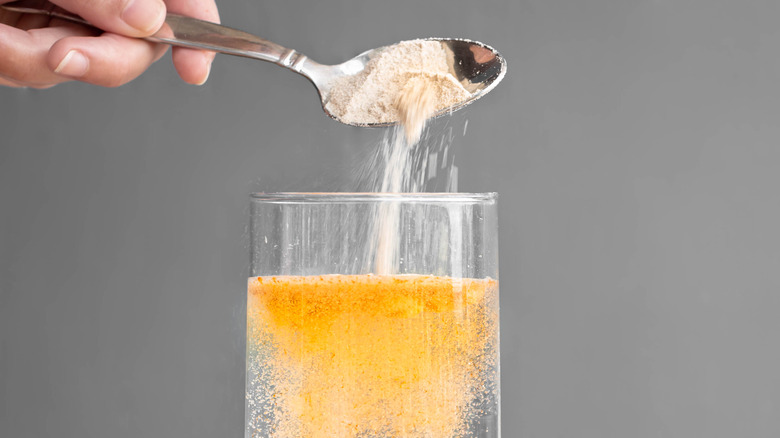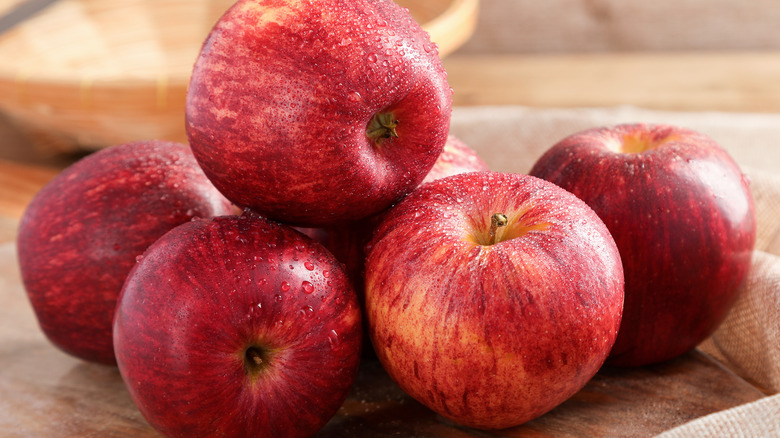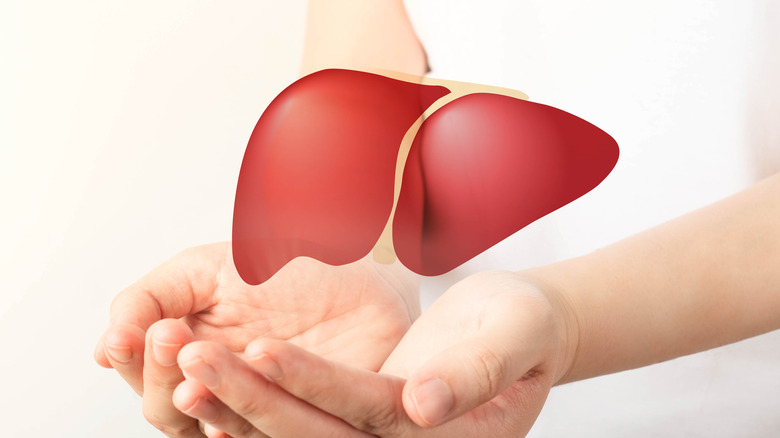The Truth About Hydroxycut
Hydroxycut is a company that sells supplements to promote weight loss. Despite previously having controversy surrounding the safety and effectiveness of its supplements, it continues to sell products. Hydroxycut's supplements can be used as part of a weight loss program, as described on the company's website. The 3-step program starts with taking one of their supplements twice per day, 30 minutes to an hour before each of your biggest meals. The company suggests maintaining a 1,500- to 2,000-calorie diet every day, and participating in moderate exercise such as walking or biking.
There are a total of 10 products listed on the Hydroxycut site. Each offers a slightly different formula. For example, some include caffeine, while others are stimulant-free. Some come in pill form, while others are powders you can mix with water. On its site, Hydroxycut claims to be America's number one weight loss supplement, having sold over 100 million bottles. Read on to learn more about Hydroxycut.
Hydroxycut's weight loss studies
On its website, Hydroxycut refers to two studies that show how effective its products are. In the first study, researchers looked at the effectiveness of decaffeinated green coffee extract, Hydroxycut's main ingredient, when it came to weight loss. The researchers examined two groups of overweight individuals. One group took the active ingredient twice daily for 60 days, and the other group took a placebo for the same period of time. While both groups of participants ate a low-calorie diet to lose weight, the people that took green coffee extract lost more weight.
The second study also looked at the effectiveness of green coffee extract (or C. canephra robusta) on weight loss, over the course of 8 weeks. This study was similar to the first in that the researchers had one group take the active ingredient while the other group took a placebo. Both groups participated in diet and exercise programs to lose weight. However, the researchers found that taking C. canephra robusta promoted more weight loss and fat loss than taking the placebo. Both studies are published on Hydroxycut's website.
Hydroxycut's main ingredient
Coffee canephora robusta is also known as green coffee extract because it's present in raw or unroasted coffee beans. Hydroxycut lists it as the main ingredient in its products to promote weight loss.
Roasting the beans destroys much of this compound, according to a study published in Gastroenterology Research and Practice. The researchers from this study investigated whether or not it lives up to its potential. In this paper, the scientists reviewed a handful of studies that investigated the effectiveness of green coffee extract. They found that overall, the studies they reviewed showed that green coffee extract can promote weight loss.
However, they caution that the effect it had on the participants in these studies was fairly small, so they're not sure exactly how much of an impact it could really have. They explain that results are promising, but more research should be done to prove that this ingredient is both safe and effecive.
Other ingredients in Hydroxycut
Besides the main ingredient, Hydroxycut uses other things to boost weight loss. Each product has a slightly different formulation with different ingredients.
An article published in LiverTox lists some of those ingredients. For example, the Hydroxycut Hardcore Elite line has caffeine, l-theanine, yohimbe extract, and cocoa extract, to name a few. This product in particular is meant not only for weight loss, but also for enhanced mental energy and mental focus. Most are geared towards weight loss only.
Another product, Pro Clinical Hydroxycut Gummies, contains a variety of vitamins, including vitamin B6 and B12. The Hydroxycut Max for Women product contains other ingredients like biotin, folic acid, and iron. Most of Hydroxycut's products contain added caffeine, which may be anywhere from 135 to 270 milligrams. It also has a caffeine-free product. All of the company's weight loss products contain the main ingredient (green coffee extract), including the caffeine-free variant. That's because it doesn't contain any actual caffeine — just an isolated compound from the coffee bean.
Does caffeine in Hydroxycut make it more effective?
Besides green coffee extract, caffeine is one of the most-used ingredients in Hydroxycut supplements. Most people get caffeine from the coffee or tea they drink throughout the day. It's been proposed as a weight loss supplement, and a group of researchers published a meta-analysis composed of caffeine and weight loss studies to investigate how effective it is (via Critical Reviews in Food Science and Nutrition).
In total, the scientists looked at 13 studies and 606 study participants. The results suggested that caffeine might promote weight loss and a reduction in fat mass. They also found that larger intakes of caffeine were more helpful in promoting weight and fat loss. That means Hydroxycut's formula could be more effective because of the added caffeine.
The effects might not be limited to the main ingredient, green coffee extract, which contains no caffeine. A study published in Physiological Research shows that coffee and tea promote weight loss, so you might not need a supplement to enjoy the weight loss benefits of caffeine.
Some Hydroxycut products use conjugated-linoleic acid
One of Hydroxycut's products is called Hydroxycut CLA Plus, a product designed for women's weight loss. CLA stands for conjugated-linoleic acid, which has been proposed as a weight loss supplement.
CLA is a type of fatty acid found in animal products, according to a study published in Nutrients. The researchers set out to investigate just how effective CLA could be for weight loss. They also looked at how it could benefit people with cancer, obesity, or atherosclerosis. The researchers found that many animal studies investigated the effects of CLA on weight loss. They state that while it was moderately helpful for losing weight, it didn't promote other benefits that normally come with weight loss (such as a reduced risk for developing type 2 diabetes). They also note that CLA helped protect the arteries in animals from damage, but there wasn't much research on humans.
The researchers conclude that this supplement could be promising for weight loss, but more research should be done to prove that it works.
Some Hydroxycut products use apple cider vinegar
Hydroxycut lists apple cider vinegar as an ingredient in a few of its products. You can buy a bottle of apple cider vinegar at the store, but be careful, as it can be quite unpleasant to drink.
According to Harvard Health, apple cider vinegar comes from apples that have been crushed, distilled, and fermented. Apple cider vinegar could be used as a mildly effective weight loss tool, although long-term studies aren't entirely convincing.
Meanwhile, the Cleveland Clinic states that while apple cider vinegar might not be very effective for weight loss, it can provide some health benefits. For example, taking it regularly can help lower your blood sugar levels. It can also decrease your triglyceride levels, which are a type of fatty acid that floats around in the bloodstream. While it might not explain the potential weight loss effects of Hydroxycut, it could offer some health benefits if it's added to a supplement.
Hydroxycut products have been recalled
Despite Hydroxycut's success in the supplement market, there have been some incidents that called into question the trustworthiness of its products.
In 2004, all of the company's products that contained a stimulant herb called ephedra were pulled from the market (per LiverTox). As the products are no longer allowed to be sold in the U.S., Hydroxycut was forced to change its formula. Still, despite taking out the ingredient in question, another product recall took place in 2009. The second recall revolved around claims of hepatotoxicity, an injury or impairment of the liver.
Although Hydroxycut has already updated its formulas, the products are still available, and there are still occasional reports of liver damage. Originally, products containing ephedra were linked to adverse side effects from taking Hydroxycut. Then, there was a link between green tea extract and liver problems. While both ingredients were removed, occasional problems with the products still occur.
Why Hydroxycut with ephedra was dangerous
Before Hydroxycut's 2004 recall, the company used an ingredient called ephedra as a main ingredient in its weight loss products. Ephedra is a shrub used as an herbal remedy in China and India, according to the National Center for Complimentary and Integrative Health.
The FDA banned this ingredient, which was used for weight loss, energy, and sports performance, in 2004. It offered some benefits such as moderate weight loss, but the risks outweighed the benefits. There were cases of heart problems, including heart attacks, linked to ephedra consumption.
The National Center for Complimentary and Integrative Health also notes that ephedra was typically taken in conjunction with caffeine, another stimulant. Ingested together, they could cause exacerbated side effects. More mild problems linked to ephedra include dizziness, anxiety, nausea, and insomnia. Due to these dangerous symptoms and the increased risk for a cardiac event, ephedra was considered unsafe for use.
Liver injury from Hydroxycut
Admittedly, the risk for liver injury from Hydroxycut can seem quite troubling, based on available scientific evidence.
A study published in the World Journal of Gastroenterology found that the links between liver damage and Hydroxycut weren't clear. They cite two instances of patients who developed liver injury after taking Hydroxycut, and suggest that doctors be more vigilant about the potential dangers for liver damage from dietary supplements.
Another study, published in the American Journal of Gastroenterology, found even more serious side liver problems associated with taking Hydroxycut. They found that among a small group of people who were admitted to the hospital with liver problems, a majority were definitely linked to taking Hydroxycut. They also discovered a small number of people who even needed liver transplants. Other milder symptoms include fatigue, nausea, and abdominal pain. The researchers caution against taking any weight loss supplement in general, not just Hydroxycut, because they're capable of causing liver problems.
Newer Hydroxycut formulas are still risky
While many of the health problems associated with Hydroxycut are linked to old ingredient formulas before the product recalls in 2004 and 2009, today's updated formulas can still cause problems.
Although side effects are more rare, a study published in British Medical Journal's Case Reports found that despite numerous changes to the ingredients in Hydroxycut's supplements, there was a case of liver damage linked to Hydroxycut from a 41-year-old man who took the product.
On their website, Hydroxycut explains that its products are safe, as long as they're taken as directed. It's possible that some of the reported cases of adverse effects from Hydroxycut resulted from misuse of the products. The company also states that its products go through carefully scrutinized controls to make sure that the ingredients are up to standards. Additionally, Hydroxycut also warns that you should consult your doctor before taking any of its offerings. Your doctor can determine if you're at an increased risk for developing side effects.
Does Hydroxycut contain too much caffeine?
Most of the products that Hydroxycut sells contain caffeine. They differ in the amount of caffeine per product, but most contain more than the amount in a cup of coffee — roughly 100 milligrams of caffeine, according to the Food and Drug Administration (FDA). Hydroxycut products are meant to be taken twice per day (per the instructions on its website), which can add up to a lot of caffeine quickly.
A paper published by the FDA on Hydroxycut estimates that taking some of the company's products would add up to 600 milligrams of caffeine in a day. The average American consumes 168 milligrams per day of caffeine, while coffee drinkers ingest about 280. That means taking Hydroxycut dramatically increases your caffeine consumption, unless you take one of the company's caffeine-free products. According to the FDA, 400 milligrams of caffeine per day is generally regarded as safe, so it's probably not a dangerous amount. However, they caution that people have different sensitivities to caffeine, so Hydroxycut could have too much for you.
Other safety concerns for Hydroxycut
Liver damage is a serious potential side effect of taking not just Hydroxycut, but other weight loss supplements as well. Still, there are other side effects that, while less serious, are definitely worth noting.
One study published in Military Medicine found that three soldiers who were taking Hydroxycut developed rhabdomyolysis after a tough workout. Rhabdomyolysis is a condition that can be caused by extremely intense exercise, per the Centers for Disease Control and Prevention (CDC). It happens when damaged muscle tissue releases large amounts of protein and electrolytes into the blood. The researchers suggest that there was a link between the high caffeine content in Hydroxycut and rhabdomyolysis (per Military Medicine).
Meanwhile, a separate article from Consumer Reports suggests that taking Hydroxycut has been linked to irregular heart rhythms and kidney problems. Moreover, the article establishes that there isn't enough evidence supporting the safety and effectiveness of weight loss supplements in general.
Is Hydroxycut a regulated supplement?
Hydroxycut isn't the first supplement to come under scrutiny for using dangerous ingredients. The Food and Drug Administration is responsible for regulating the supplement industry, but they approach it differently from how they would with a drug.
Specifically, they don't screen products before they're made and circulated to consumers. Instead, they rely on supplement companies to screen their own products for potentially dangerous ingredients. That's because supplements are regulated as foods, not as drugs (per the FDA). The FDA also leaves it up to a company to make sure that the claims they make on their labels isn't misleading. They also can't claim to treat any medical condition.
However, since products aren't checked before they're sold, they could be available to buy before the FDA finds out that either the ingredients are dangerous or the claims made on the label are inaccurate. That means it's up to you, the consumer, to be vigilant when buying a new supplement. When in doubt, check with your doctor to see if you should be taking a supplement.
Are there any effective weight loss supplements?
Losing weight is a tricky task. Many people who've tried to lose weight understand just how frustrating and slow the process can be. There isn't a magic pill to make you lose weight, and it goes beyond simple diet and exercise changes.
As the CDC explains, you need to develop healthy eating habits and include regular physical activity into your daily routine. One to two pounds per week of weight loss can be sustainable; while this might seem slow at first, it adds up over time.
A study published in Nutrients compiled research on numerous supplements to see how effective they were for weight loss. They found that none were capable of producing significant weight loss on their own. That means you shouldn't rely on any supplement to help you lose weight. However, they found that some could help. To inhibit the absorption of nutrients after a meal, they recommend phaseolus vulgaris extract and epigallocatechin from green tea. To suppress appetite, you can have caffeine from coffee or chrologenic acid.



